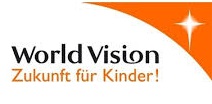Project World Vision Children Study
4th World Vision Children Study on the Perspective of Children aged 6 to 11 about their Life Situation, Attitudes, and Perceptions
What does it mean to grow up in Germany? In order to answer this question children as agents of their own lives are asked qualitatively and quantitatively about the main topics of child well-being, child poverty, and justice, as well as flight and migration.
The World Vision Children Studies have been conducted three times (published in 2007, 2010, and 2013) and yielded findings generated by children themselves concerning child well-being, child poverty (such as experiences with deprivation), the social implications of migrant background for children, and children’s sense of justice. Findings of the last surveys clearly show that children connect their well-being to participation and agency. The children who participated in the surveys indicated how much their self-efficacy depends on the possibility to have a say in their own living environment. This also involves giving children the chance to take advantage of available opportunities of influence and to create their style of life. The study constitutes quantitative as well as qualitative surveys. It carries methodical conviction through triangulation of research methods. By doing so, the vision of children’s living environment from a child-centered perspective is facilitated.
For the upcoming World Vision Children Study these topics will be augmented by including the situation of refugees hoping for shelter all over Europe, but especially in Germany. We additionally intend to find out how children perceive the refugee’s situation in Germany and to what extent they are confronted with the societal challenges of integration of refugees. It is a cooperation project of World Vision e.V., Goethe-University, University of Fribourg, and Kantar Public, an institute for social research.
The World Vision Children Studies traditionally aim to give children growing up a voice which needs and deserves to be heard.

